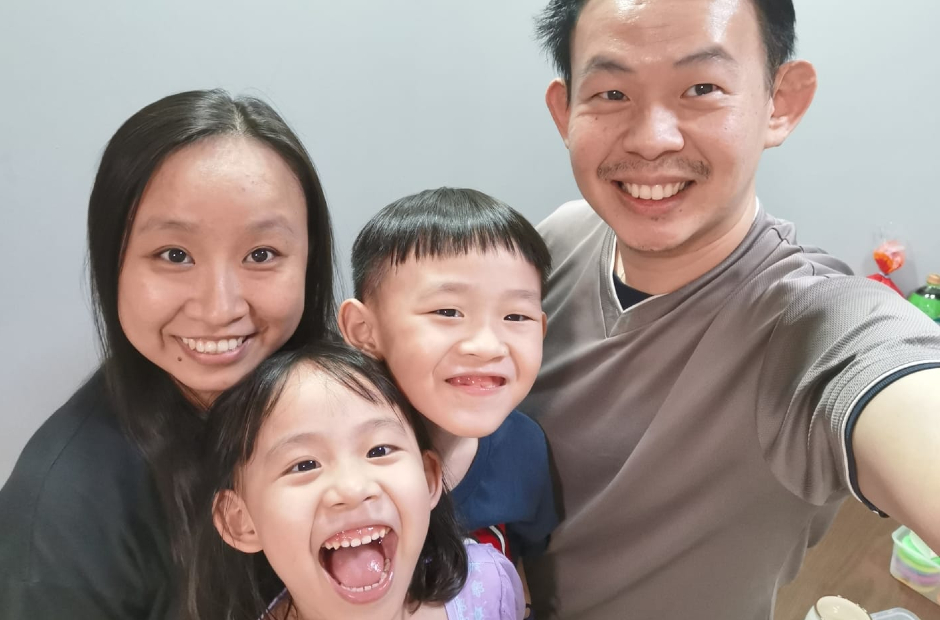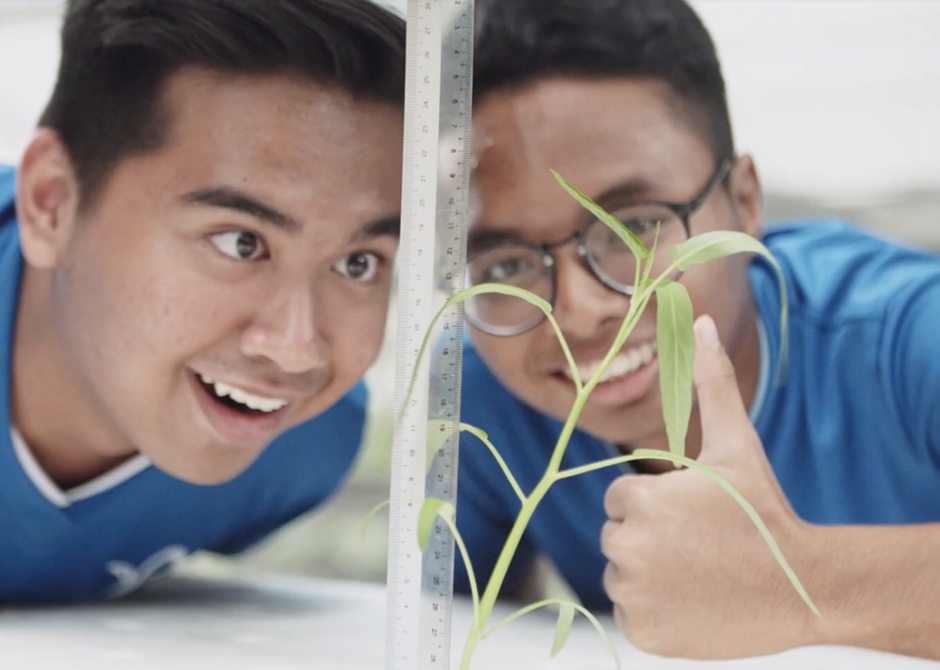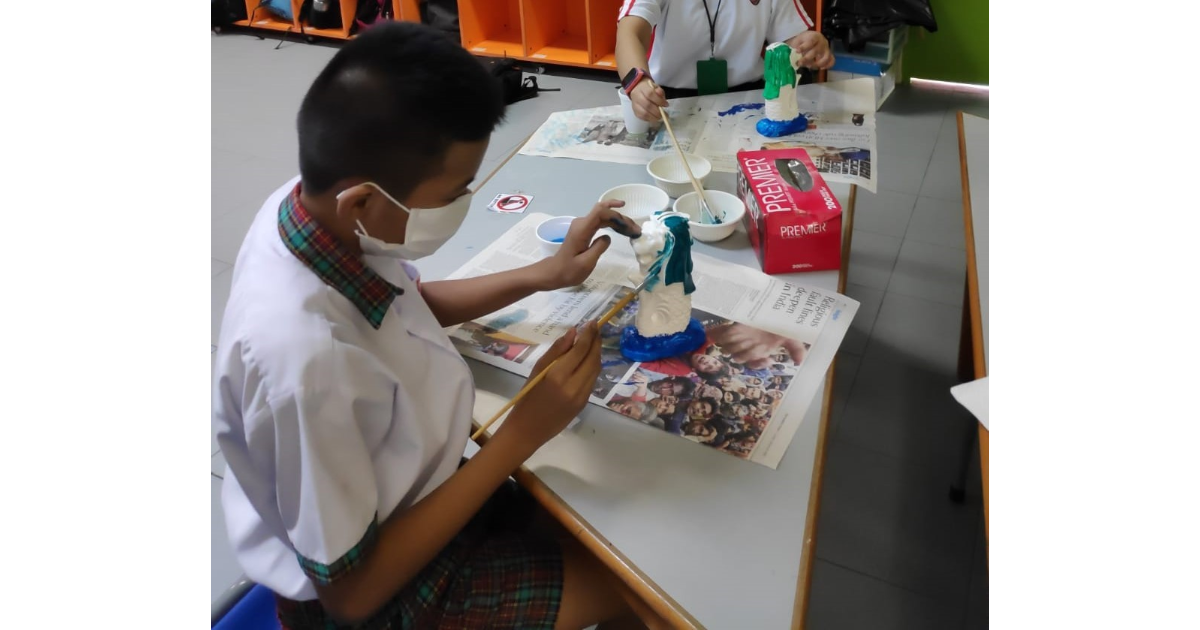Parents of Primary 1 students may find this familiar – Mdm Beh Meng Hiang’s son Teo Kai Xiang was just three months into primary school when full Home-Based Learning (HBL) kicked in. “At the beginning, he was not familiar with the Student Learning Space (SLS),” says Mdm Beh. “I had to go through the whole process with him. How to log in, how to check in his temperature, where to tap to access and do his assignments.”
The first two days were tough, Mdm Beh shares. Kai Xiang needed close guidance and she had to be constantly by his side. But by the third day, he could navigate SLS more independently. There were still hiccups, such as not realising he had to scroll down to view more information before answering a question, but after two weeks, Kai Xiang was mostly handling HBL on his own. He would only ask Mdm Beh for help when he needed to take a video of himself doing PE, for example.

Kai Xiang completing his PE lesson during HBL.
Mdm Beh recognises the growth in her 7-year-old. “In just two weeks, I didn’t need to nag at him to complete his daily HBL. He did that all himself. He showed that he had initiative and was willing to learn and apply new skills within this short period of time.”
There were surprises outside schoolwork, too. The family has, unexpectedly, formed a team in a multiplayer online mobile phone game.
In the evening, the entire family gets an hour of screen time. Kai Xiang and his 6-year-old sister would usually watch TV, YouTube videos, or play online games, while Mdm Beh and her husband played a multiplayer online mobile phone game. One day, Kai Xiang asked to try. A team requires five players, so the entire family (and Mdm Beh’s brother) formed one. Now that’s become their family bonding time.
“The kids don’t really contribute to the team,” she laughs. “They’re more interested in the characters and their costumes. Of course, we always lose, but that’s not important.”
Though it seems unusual, there are positives. “It’s just another fun thing we do together as a family; a common topic that we talk about. They like feeling involved in what us adults are doing, and they know they need to continue to be responsible for their screen time for this to continue. So, I thought, let them try – appropriately and safely-supervised.”






